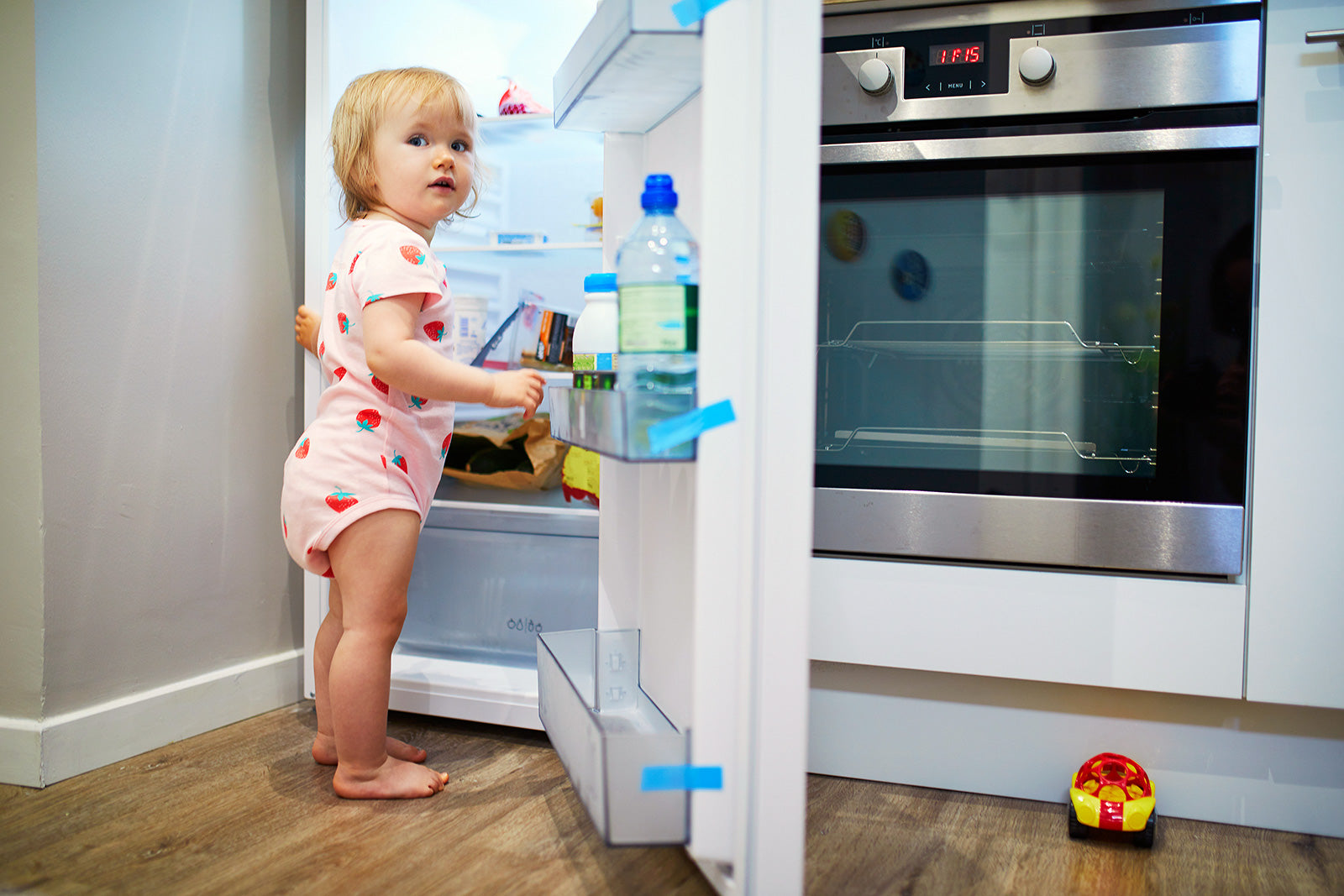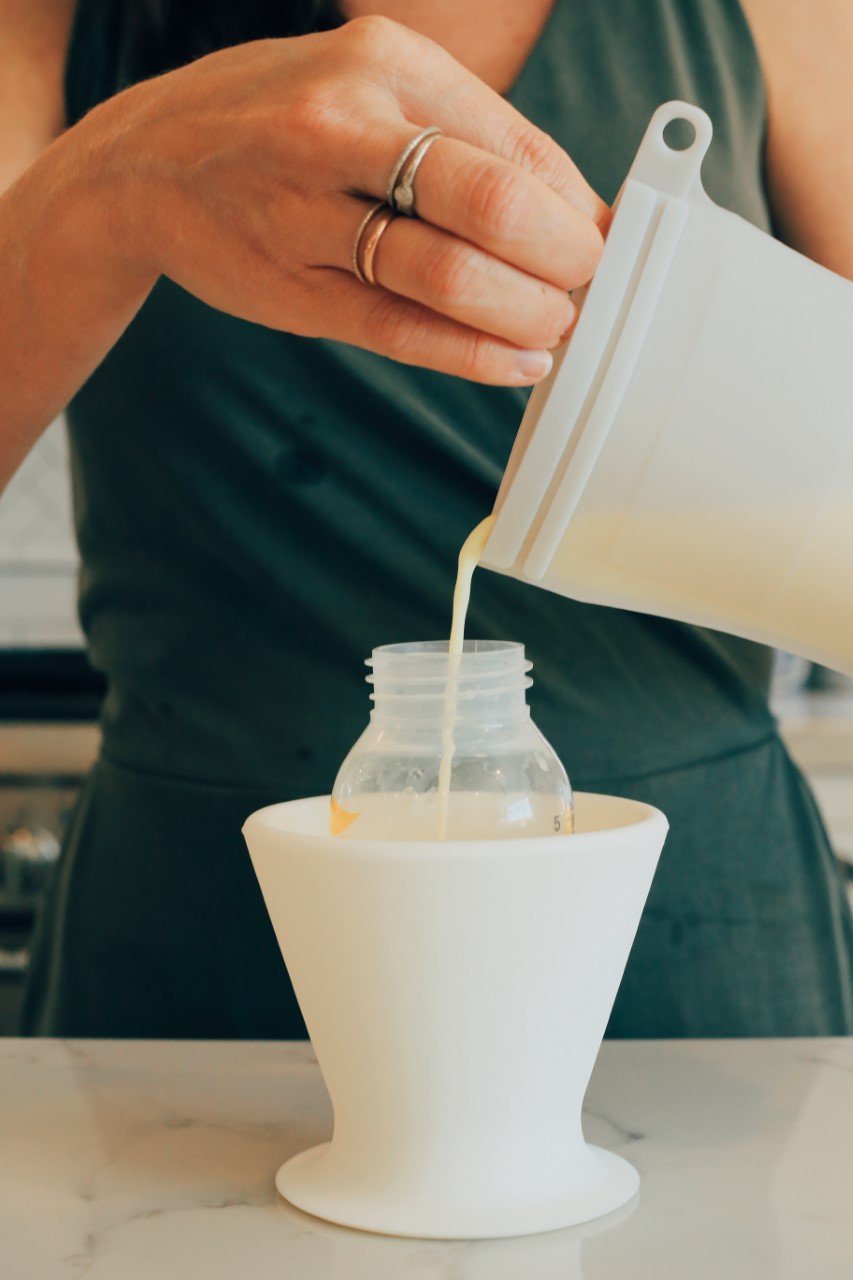A Guide to Using Donor Breast Milk

The idea of using another mother’s breast milk likely seems strange at first. We're willing to bet it's something you never thought to even consider before you had a baby. But what if you do find yourself in a position where doctors are urging you to feed your baby another mother’s milk when you can’t provide it on your own? This often ends up being a situation where a decision needs to be made quickly.
It has become common practice for babies in the NICU to be offered donor milk from a milk bank, and informal sharing has found a place among moms who want to feed their babies breast milk but are unable to.
Today we’re helping guide your decision on making a choice to use donor milk, including:
- Who may consider using donor breast milk,
- Benefits of giving donate breast milk to your baby
- Safety of using donated breast milk
- How to obtain donor milk
Our hope with this article if to give you better understanding of the process of using donor breast milk so you can do what's best for your baby.

Should you use donor breast milk?
For premature and sick babies, often in the NICU, human breast milk can be vital in giving them the best nourishment to grow and thrive. It is especially important for these babies to have access to breast milk even when their own mothers are unable to provide it. If you find yourself in this situation, your healthcare provider will order the donor milk and should gain your consent before feeding it to your baby.
If you’re wondering if you should use donor breast milk for a healthy, full-term infant, that is much more of a personal preference. Though we know that breast milk offers babies the perfect nourishment, we know that formula is a healthy choice, too. If you are unable to give your baby breast milk (or not enough) you may make the decision to give your baby donor milk through informal milk sharing.
So just how will using donor breast milk benefit your baby?
Benefits to Using Donor Breast Milk
According to the March of Dimes, “Breast milk is the best food for babies in the first year of life.”
Of course, most moms take that to mean their OWN breast milk, not someone else’s. The truth is that the nutritional profile is what’s superior to formula, so it doesn’t really matter who the breast milk is coming from.
The benefits are vast when it comes to being able to give preemies or sick babies breastmilk.
Benefit of Donor Milk for Premature or Sick Infants
Many mothers plan to breastfeed their babies at birth and those who choose to do so usually can (and can give them the proper amount.) But that’s not true for every mom, especially those who give birth to premature infants. In fact, Mother’s Milk Bank explains that less than half of moms who deliver prematurely are unable to breastfeed.
This is because premature infants often have trouble latching which stimulates a mother’s milk production. Though pumping is a great option to have in this case, pumping enough milk for her baby’s needs can be difficult. And according to Medela, “A mother’s milk usually ‘comes in’ around two to four days after the birth but if you’ve delivered prematurely this can sometimes be delayed.”
In this case, donor milk will often be ordered for the premature infant. Another scenario where donor milk is recommended is when a baby born with an illness may not be able to breastfeed.
If donor breast milk is being recommended for these babies, it has a clear health advantage over formula.
Here are the reasons why donor milk is prescribed:
- Provides optimum immunological and growth promoting properties
- Offers an easy to digest food containing enzymes that aid digestion
- Helps prevent NEC (necrotizing enterocolitis), and illness that can damage and destroy the intestinal tract
- Fights infection
- Promotes brain development
When considering the evidence, it’s easy to understand why hospitals utilized and recommend donor breast milk so widely. Consider this study published by the American Academy of Pediatrics Journal, “The potent benefits of human milk are such that all preterm infants should receive human milk. If mother’s own milk is unavailable despite significant lactation support, pasteurized donor milk should be used.”
If this feels off-putting as a parent, you’re not alone in feeling that way. The bokee’s own CMO and co-founder, Lauren Stuart, had this to share about her experience receiving donor milk for her premature son:
“When we were offered donor milk, it was such a blessing. It took the pressure off of me (hello mental and emotional relief!) and nourished my son. With preemies, the doctors wanted as much breast milk provided as possible. It took me a few days to get over that I would be feeding my son someone else’s milk, but I knew it was tested and safe, so if it would benefit him, I needed to get over it!”
Want to know more about why you need bökee to simplify your parenting journey as a bottle-feeding parent? bökee: The Bottle Prep Accessory Parents Need
Benefit of Donor Milk for Full-Term and Health Babies
Perhaps you are in a situation where you have a full-term baby who you can no longer give breast milk to (or perhaps not enough without formula supplementation). You may consider utilizing a friend or acquaintance’s breast milk stash in the even that they have more than enough.
In this case, the lack of breast milk is not standing in the way of your baby staying healthy and thriving. With that said, when considering the facts about breast milk being the best food for a baby for their first year, many moms want to find a way to give their baby breast milk for as long as possible.
This is valid considering the fact that breast milk is similar from mom to mom. The benefits would be the same as if you your baby was getting your breastmilk including:
- Optimal nutritional profile
- Contains antibodies to fight viruses and bacteria
- Lowers risk of allergies, asthma, and other respiratory illnesses
- Often have fewer ear infections
- May lower the risk of obesity and diabetes later in life
But it’s important to remember that weighing the options between breastfeeding and formula feeding is different than donor milk vs. formula. Infant formula is a perfectly healthy alternative to breast milk and MANY babies will be just as healthy using formula instead. Additionally, there can be risks associated with utilizing breast milk you haven’t obtained with a prescription through a milk bank.

Safe Practices of Using Donor Breast Milk
At this point you understand how vital donor breast milk can be for a NICU baby, but like anything you’re giving to your baby, you want to know that it's safe.
Any donor milk that’s given in the hospital or that’s obtained through a doctor’s prescription, must go through a rigorous process before it is given to your baby. An organization like the Human Milk Banking Association of North America has strict standards that donor milk must go through before being given to a baby.
Steps they utilize to ensure safety of donor milk from a verified milk bank include:
- Milk Donor Screening
- Special cleaning technique to avoid contamination
- Nutritional Analysis
- Poured into tamper-evident bottles
- Pasteurization
- Culture to ensure absence of bacteria
- Deep freezer storage
In this case, you want to consider breast milk like medicine you’re giving your baby. Even though the process of giving your baby donor milk isn’t 100% risk-free it is very safe according to the American Pregnancy Association. It’s important to understand the implications of its use and how vital it may be for your baby by speaking with your doctor.
What about getting milk from a friend or through a milk sharing organization online?
Full-term, healthy babies are rarely prescribed donor milk. But there are other options for obtaining donor milk. Let’s talk about these options as well as the risks associated.
- It is not uncommon for mom friends to share breast milk. In this case, one mother usually has an oversupply while the other mother wants to be able to give her child breast milk but can’t.
- Beyond that, mothers around the world turn to informal milk sharing networks, with the largest being Human Milk 4 Human Babies, to connect with another mother who can offer them breastmilk.
Many families have been able to give their babies breastmilk through one of these two options. And most are able to do it successfully without any issue. But it is an unregulated space, which means there can be risks in utilizing donor milk in this way. So of the safety implications to consider include:
- contamination
- transfer of drugs or medication
- infection risk
One way that parents can lower risks of milk sharing in this way is through flash-heating or a home pasteurization method to reduce risks of transferring infection. This is a decision that only you can make in determining what you think is best for your baby.
Obtaining Donor Milk
If you find yourself in a situation needing donor milk for your baby in the hospital, healthcare staff will likely share with you your options. However, we always encourage parents to advocate for themselves and it's important to reach out to your doctor if you think donor milk would be a good fit for your baby.
If you have an older, healthy baby who you want to be able to continue providing breast milk we recommend you do extensive research and talk to your doctor. Before informally milk sharing, be sure you are comfortable with the process and can feel confident that the benefits outweigh the risks.
What about cost of donor breast milk?
Though you might think that receiving milk from a non-profit milk bank that is obtained through the hospital would be free, it’s actually not. Though an organization like HMBANA doesn’t charge for the milk itself, there are a lot of costs involved in screening donors and processing the milk that must be covered.According to Romper, the cost ranges between $27 and $590 per NICU infant. But there is financial aid available so this is something you’ll want to bring up with your doctor.
As far as paying for donor milk through milk sharing programs, this practice should be avoided. Human Milk 4 Human Babies, for example, does not support the selling of breast milk. If you want to milk share, there are likely plenty of mothers out there who want to help a fellow mom out of the goodness of their heart.
We know how overwhelming it can be to feel like you're unable to provide what your baby needs. Allowing the professionals to guide you to make an informed decision that will help your baby grow healthy and strong, while also considering what you feel comfortable with, will help you do what's best for your little one.




